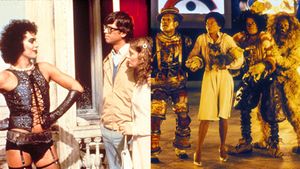In English, the Danish word mo translates to "maiden," and is laced with cultural connotations of virginity, innocence, and purity. Karen Marie Orsted, who's adopted the term as her pop moniker, has found personal power in its meaning. For her, it's a declaration of youthful independence, and a statement of purpose that has come to define her career as she's ascended from the underground fringe to international stardom. "I'm still a childish person," she says. "But that's what making music is all about--creativity doesn't have an age."
MO is known globally for her breakout single, "Lean On," produced by DJ Snake and Diplo's electronic trio, Major Lazer. It became 2015's summer anthem and remains one of the most streamed tracks on Spotify, with more than 1 billion total plays. The song, which she describes as her "little weird baby," not only carved out a space in the mainstream for the former outsider but also marked a shift in her approach to songwriting. With "Lean On," she hit a sweet spot, buffering her jagged edges to achieve a more Top 40-friendly sound.
Related | Astrid Andersen: Getting to Know the Luxe Streetwear Savant
A self-declared punk, MO grew up in Ubberud, a village on Fyn, but quickly tired of her mtitlesundane middle-class existence. Danish subculture felt more like home, so she became a teenage activist, engaging in politics through feminist and socialist groups. For three years, she squatted with friends in old buildings as an act of reckless rebellion. "I'm from a small city, so we'd get kicked out after a week," she admits, laughing. "It wasn't very radical, but we tried."

She spent much of her childhood and adolescence writing songs on her great-grandmother's piano, and by the age of 18 had combined her two major interests--music and protest--to form Mor, her aggressive, trashy punk act with pal Josefine Struckmann Pedersen. "Of course we were singing about feminism, but even more so about how we fucking hate racists," MO says of the duo, who released two EPs, one of which was titled Fisse I Dit Fjaes ("Pussy in Your Face").
The pair got "pretty famous," at least in certain circles, but MO eventually needed an outlet for relating her own experiences. Mor disbanded in 2012, and soon after, under her current stage name, she began creating weird bedroom electro inspired by her provocateur idols like Peaches, including the song "When I Saw His Cock." Her 2014 debut solo album, No Mythologies to Follow, was more of a critical darling than a commercial win--nowhere near as successful as "Lean On" or "Cold Water," her recent collaboration with Justin Bieber. "It has been a long journey for me to figure out how to marry the pop world with my instinctively alternative backbone," MO says, "but I soon realized you don't have to be either/or." Rather than rush to release a follow-up, she's spent the past two years dropping select singles. The soaring "Final Song" and "Drum" are deceptively upbeat songs about breaking up, while on "Nights With You," she craves an evening out with a special girl, uttering one of her best lines: "Don't care about your boyfriend waking up alone."
MO prefers to keep the details of her forthcoming sophomore album under wraps, but she promises that it will reflect her current mission to live in the moment. The record knows no gender or sexuality, she explains--an expression of the childlike naivete she tries to sustain in her music. "A love song is a love song, regardless of how you identify," says the singer, who's uninterested in labeling herself or those around her. "I'm always striving to be free through my music--to be without worries--and to become more connected with myself.
Photography: Jermaine Francis
Styling: Marie Louise Von Haselberg
Suit: Emporio Armani
Bra: Baserange
Makeup Artist: Danielle Kahlani
Hair Stylist: Nicole Kahlani
Digital Operator: Jakub Gessler
Photo Assistant: Shane Ryan


























































































